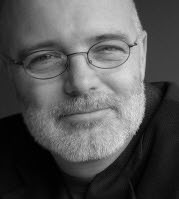Every once in a while I read a book that puts into words what I have been thinking, but couldn’t quite express. These are not so much “Aha!” moments as “Yes! Someone who understands!” moments. This last month, I happened to read two such books. Both put into words what I have been thinking and feeling for two-three years now.
Previously, I wrote about how the average reader can only read about 4000 books in a lifetime. These are two books I am glad are on my list. Both books might have made it into my Top Ten List. Definitely my top twenty.
The first book, Church Without Walls by Jim Petersen, is a book I’ve owned for about ten years, but never got around to reading. It’s probably a good thing I didn’t read it ten years ago, because it wouldn’t have meant much to me back then. Ten years ago, I thought I had church all figured out. I even wrote a book about it (I thank God it never got published…). Jim Petersen bases his book off of some church planting work he did in Brazil in the 1960s. He found that to really reach people who wouldn’t step foot in the typical church, he had to radically change the way the church looked and functioned. In the rest of the book, he summarizes the historical, theological, and biblical insights he came to as he struggled with how to allow this new church of Brazilian Christians be the church in their culture. (I recently learned that this this story is further developed in a new release, Will this Rock in Rio? by Ken Lottis.)
Jim Petersen then takes the lessons he learned in Brazil and applies them to our own time and culture. His basic conclusion is that various traditions have locked us into doing church a certain way, and have ceased to be helpful for many of the people we are trying to reach with the gospel (cf. p. 208). By abandoning some of these traditions, we actually liberate the church to live the gospel in our culture and communities. I’m looking forward to reading this book again.
The second book which got my heart racing is Repenting of Religion by Greg Boyd. Most Christians love to say they have a “relationship” not a “religion.” But the truth is that most of us just have another religion. I see this first hand every day at my job where I get to interact with people of seventeen different religions. Whatever differences they all may have, one thread runs through them all (Christianity included) — judgment and condemnation.
As Christians, we judge gays, lesbians, the rich, the homeless, people of other religions, atheists, heretics, criminals, drunks, drug addicts, prostitutes, pimps, politicians, and anybody else we can think of to point our finger at. Greg Boyd points out that Scripturally, these are not really the sins that God is most concerned about. God is more concerned with other sins, which happen to be found in the lives of most Christians, especially those of us here in the United States.
But even this not Boyd’s point. He doesn’t just want us to shift our finger pointing from one target to another. He wants us to stop the pointing altogether. Finger pointing — judgmentalism — is a symptom of religion. “But wait!” you say, “Jesus judged. Paul judged. We are even told to judge each other! What about those texts?” Boyd is not ignorant of these texts and deals with all of them. His basic conclusion is that the only judging Jesus and Paul do is to judge the self-righteous, hypocritical, legalistic religious people for committing the sin of judging others.
As with everything Boyd writes, this book challenges your thinking and causes you to see certain Scriptures in a new light. If you want to learn to live out the love of Jesus within this world, you must read this book.






